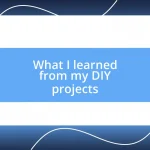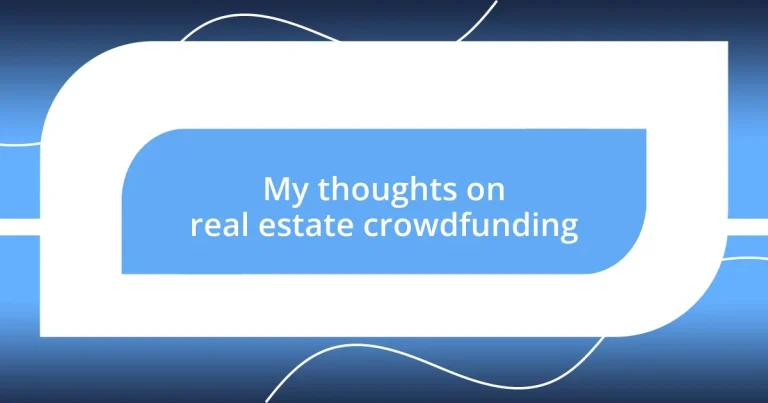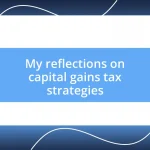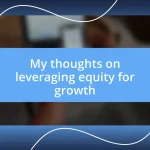Key takeaways:
- Real estate crowdfunding democratizes property investment, allowing everyday investors to diversify their portfolios and connect with communities.
- When selecting a crowdfunding platform, consider reputation, fees, investment minimums, diversification opportunities, and investor support for a successful experience.
- Successful investment strategies include diversification, monitoring market trends, and practicing patience for long-term growth.
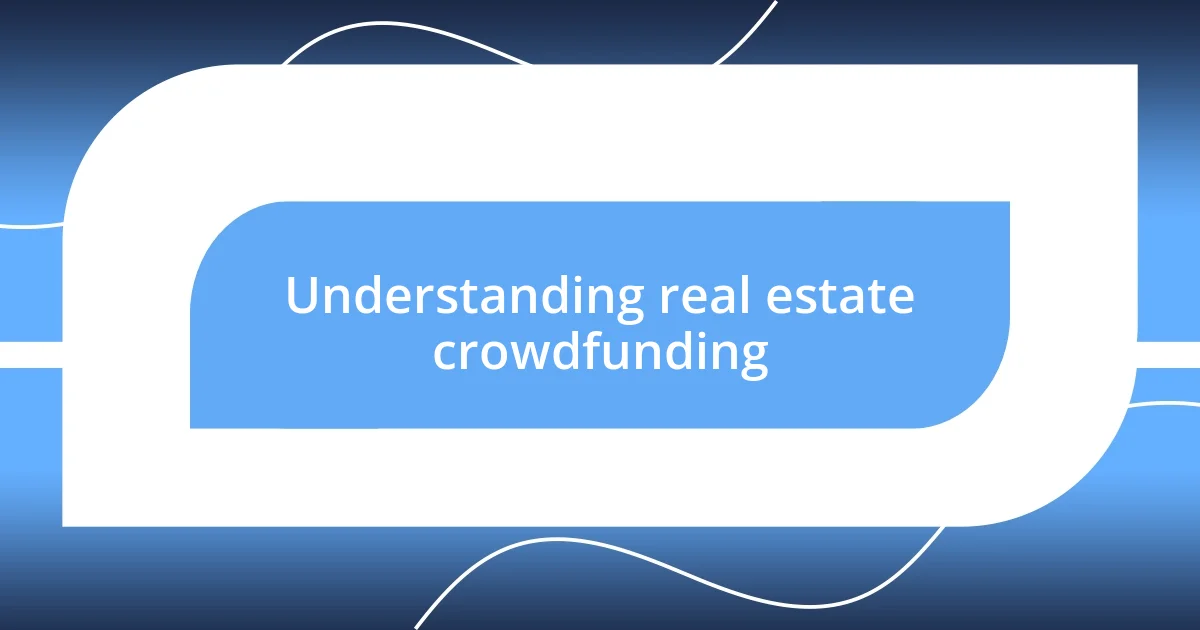
Understanding real estate crowdfunding
Real estate crowdfunding is essentially a way for everyday investors to pool their money together to invest in properties, which was once the exclusive realm of wealthy individuals. I remember the first time I learned about it; it felt like discovering a secret door to a world that had been locked for too long. It’s fascinating how technology has democratized access to real estate investment opportunities previously available only to a select few.
One of the most compelling aspects of real estate crowdfunding is the ability to diversify one’s investment portfolio. Instead of putting all your money into a single property, you can contribute smaller amounts to multiple projects across various locations. This not only spreads the risk but also opens up the chance to invest in properties that align with your personal values or interests. Have you ever considered what it might feel like to own a piece of a vibrant community? That connection to the investments can be quite rewarding.
However, like any investment, real estate crowdfunding does come with its risks. I once had an experience where I invested in a project that seemed promising but ultimately faced delays and financial hiccups. It’s a great reminder that while the potential for profit is appealing, one must always do their due diligence and be prepared for the unexpected. This element of risk adds a layer of excitement but also requires a thoughtful approach to investment strategy.
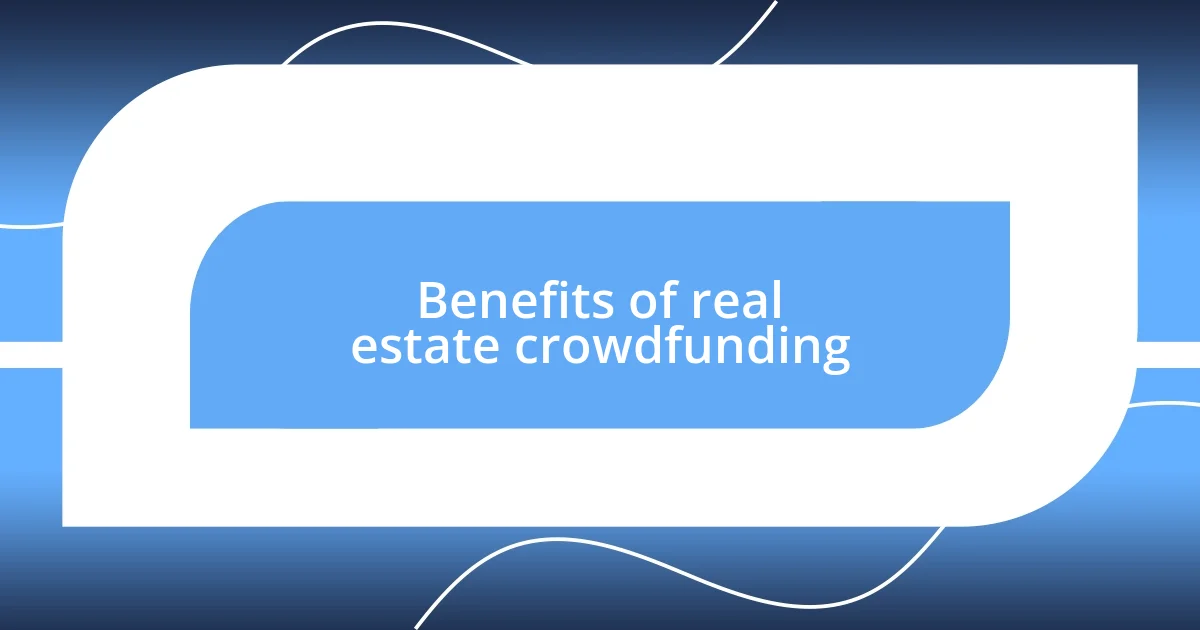
Benefits of real estate crowdfunding
Real estate crowdfunding offers a unique opportunity for smaller investors to step into the real estate market without needing significant capital. I remember the thrill of investing my first small amount into a multifamily unit; it felt like joining a club where everyone shares the same goal of building wealth. This accessibility not only allows for participation in valuable income-generating properties but also fosters a sense of community among investors, creating bonds over shared experiences.
Another benefit is the potential for passive income. By investing in real estate crowdfunding projects, you can earn returns without the active management that typically comes with being a landlord. I once thought managing a rental property sounded appealing, but the idea of dealing with tenants and maintenance issues quickly deterred me. The beauty of crowdfunding is that I can enjoy returns while focusing on my primary job and other interests, which enhances my work-life balance.
Let’s not overlook the transparency that comes with many crowdfunding platforms. They typically provide detailed information about projects, including financial projections and team backgrounds. I’ve found that access to this level of insight fosters trust in the investment process. In making informed choices, investors can feel more empowered and confident—elements that are crucial, especially when stepping into unfamiliar territory like real estate.
| Benefit | Description |
|---|---|
| Accessibility | Allows smaller investors to participate in real estate projects. |
| Passive Income | Earn returns without the responsibilities of property management. |
| Transparency | Provides detailed project information enabling informed investment choices. |
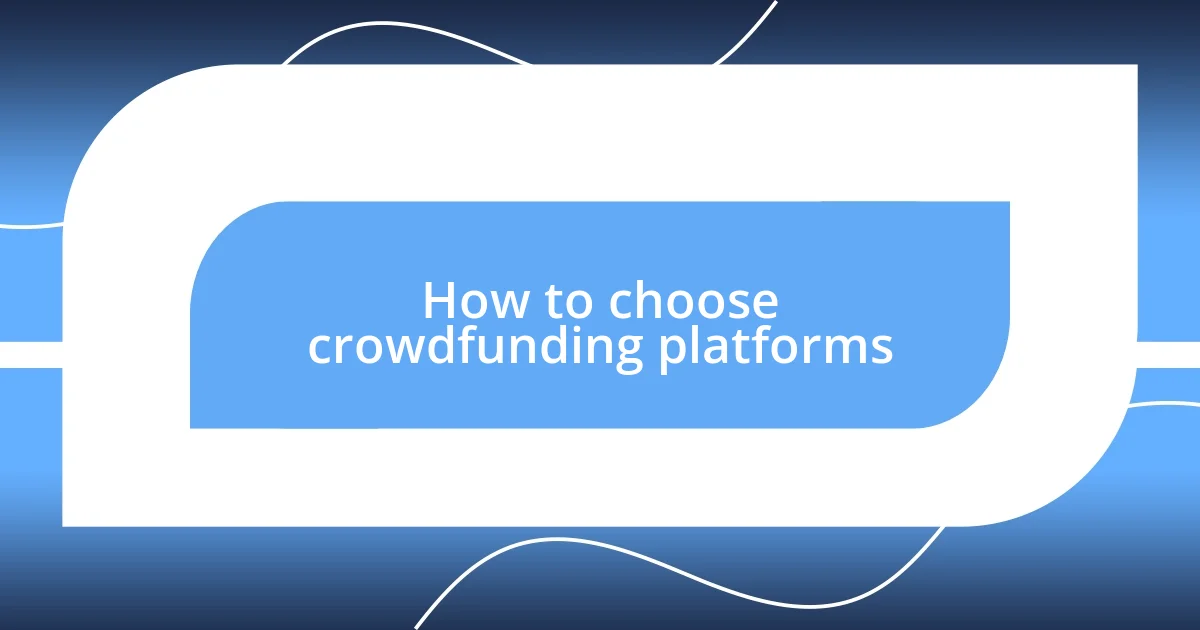
How to choose crowdfunding platforms
Choosing the right crowdfunding platform is crucial for a successful investment experience. I remember browsing through multiple sites, feeling a mix of excitement and uncertainty. It’s essential to evaluate the platforms based on their track records, available investment opportunities, and the level of support they provide to investors. A platform that resonates with your personal values can make your investment journey more fulfilling.
Here are a few key factors to consider when selecting a crowdfunding platform:
- Reputation: Look for platforms with positive reviews and a history of successful projects.
- Fees: Understand the fee structure, as costs can eat into your returns.
- Investment Minimums: Check the minimum investment amounts to ensure they fit your budget.
- Diversification Opportunities: Consider whether the platform offers diverse projects across different locations and property types.
- Investor Support: Ensure the platform provides solid customer support and resources to assist you with your investments.
A well-rounded selection process can lead to a deeper connection with your investments, which is something I’ve found personally rewarding. When I finally chose a platform that aligned with my investment philosophy, it felt like I was stepping into a community that valued transparency and collaboration.
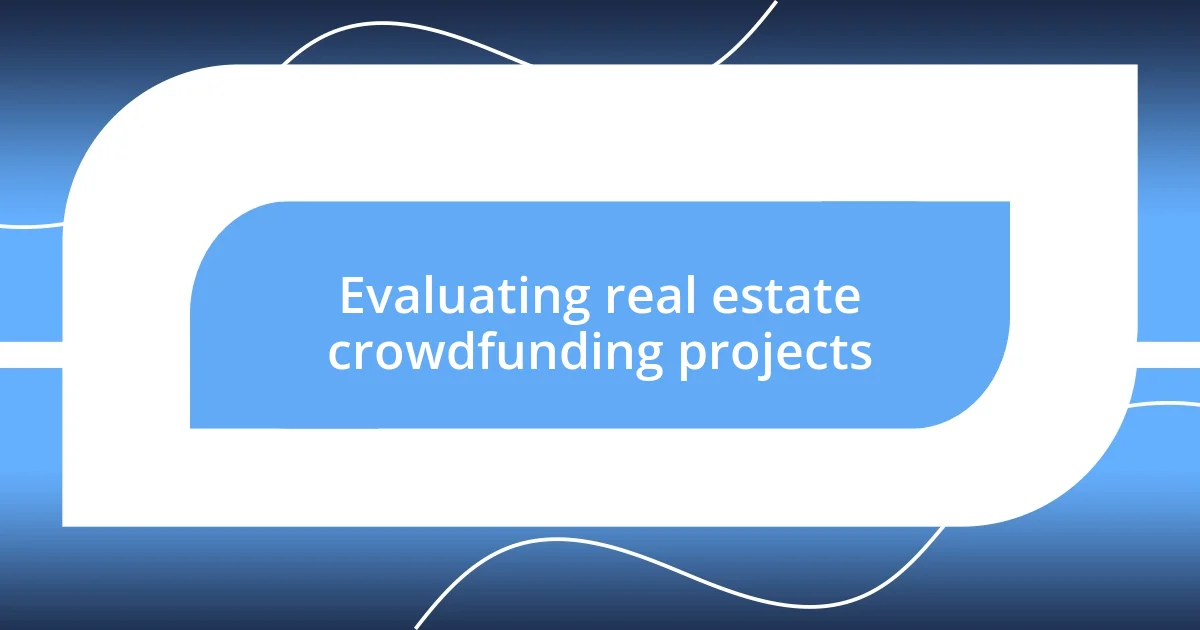
Evaluating real estate crowdfunding projects
When evaluating real estate crowdfunding projects, it’s important to dive deep into the specifics. For instance, I find it helpful to review the project’s financial projections and historical performance data. Have you ever noticed how a well-detailed breakdown can clarify the potential risks and rewards? In my experience, a project with strong past returns and clear financial forecasts often indicates a more reliable opportunity.
Next, understanding the project team behind the investment is crucial. I can’t stress enough how much I value the experience and track record of the people managing the project. When I learned about the success stories of the developers involved in my most recent investment, it gave me a sense of security. Their expertise was a comforting factor, reminding me that skilled hands were steering the project.
Finally, I always consider the management fees tied to the project. Have you ever invested only to be surprised by hidden costs? I have, and it’s definitely a learning moment. A transparent fee structure not only helps set realistic expectations for returns but also builds trust in the platform. Being aware of how much of my investment will go toward fees keeps my investment decisions grounded and focused on potential gains.
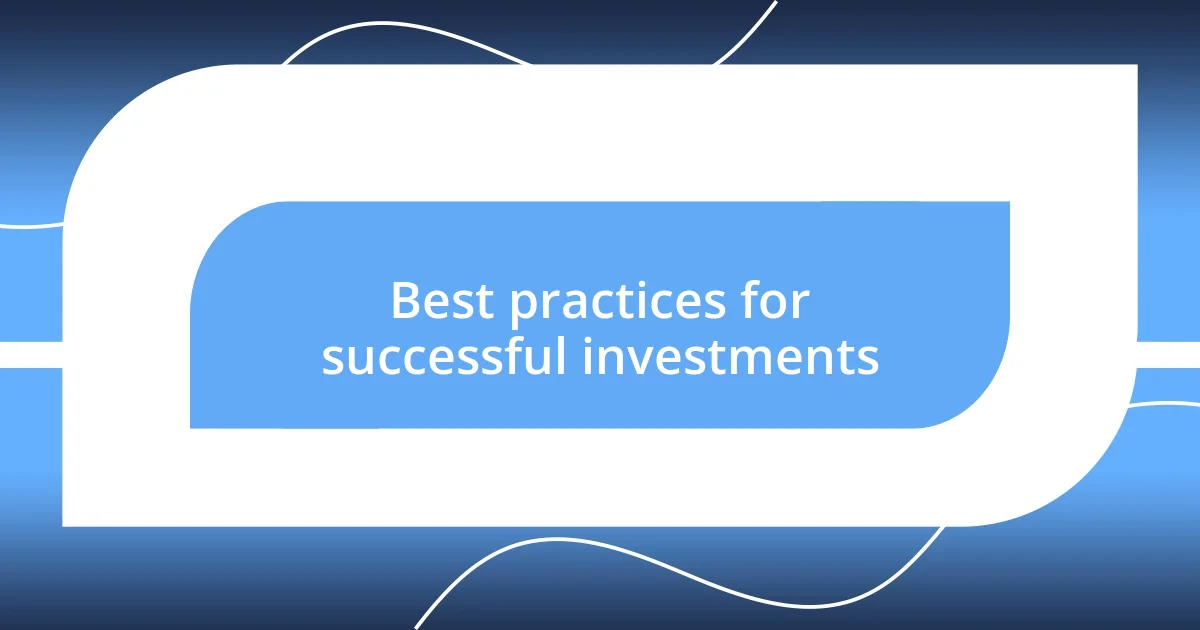
Best practices for successful investments
In my journey through real estate crowdfunding, I’ve learned that diversification is key. Initially, I concentrated my investments in one project, and when things didn’t go as planned, I felt the sting of risk. Now, I spread my investments across different locations and property types. This strategy not only lowers my risk exposure but also provides a more stable foundation for returns. Have you considered how diversifying your investments could safeguard you against unexpected downturns?
Another best practice I’ve adopted is keeping a close watch on market trends and economic indicators. Early on, I didn’t pay much attention to the broader market context, and I missed out on significant insights. For instance, when I noticed rising rental demands in a specific area, I jumped at the chance to invest, and it paid off handsomely. Staying informed enables me to make smarter choices and adjust my investment strategy to align with the ever-evolving market landscape.
Finally, I cannot stress enough the importance of patience and long-term thinking. Initially, I wanted quick returns, but I discovered that real estate often requires a more patient approach. During one of my investments, I learned that holding onto a property through a slow economic period eventually led to substantial growth. This experience taught me that viewing my investments through a long-term lens not only helps to weather fluctuations but also cultivates a rewarding journey. How have you navigated the waiting game in your investments?




